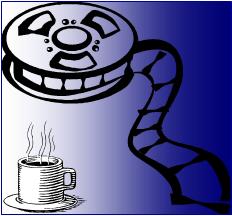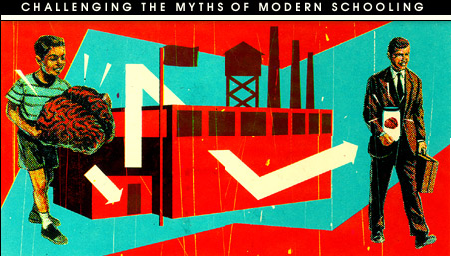

|
 |
The Three Burials of
|
Please go to the new Coffee Coaster site implemented more gracefully in Wordpress. This page: http://brianrwright.com/CoffeeCoasterBlog/?p=6616 |
Tommy Lee Jones ... Pete Perkins
Barry Pepper ... Mike Norton
Julio Cedillo ... Melquiades Estrada
Dwight Yoakam ... Belmont
January Jones ... Lou Ann Norton
Melissa Leo ... Rachel
Irrfan Khan ... Police Inspector
Saurabh Shukla ... Sergeant Srinivas
Border Patrolman: How many got away?
Mike Norton: Three.
Border Patrolman: Well, someone's got to pick strawberries.
You want to understand the real meaning of immigration control? Then I suggest you check out this movie and watch it multiple times. A few weeks ago I reviewed The Visitor, an exquisite dramatic statement on the unique process the federal government (as any other leviathan-state) uses to crush citizens of Earth who happen to find themselves inside US boundaries with defective paperwork. In that Oscar-worthy movie, the unfortunate paper-deficient world citizen was from the Middle East. In Three Burials, our victim is a 'border'-crosser from the south.[1]
Melquiades Estrada (Julio Cedillo) is basically a solitary Mexican nomadic goat farmer living in an artificially demarcated region of Earth known as (ADREKA) Mexico; he frequently crosses over and back from ADREKA United States, specifically near an ADREKA Texas border town where at one time he hires out to hard-working cattle-ranch operator Pete Perkins (Tommy Lee Jones). In what is probably quite common, certainly more humanizing than the stereotypes, the two men become not only friends, but best friends.
Melquiades (Mel) is the younger man and innocent of the ways of the world, while Pete, though hardened by making a living in a rugged country, has a wild and funloving
streak. He considers Mel a son. In one sequence, at Pete's instigation the two of them pick up some brewskis and a couple of local women—both married and both who go for the side-action mainly because this town is so boring you can't even make a decent soap opera from it—and take them for a tumble at the No-tell Motel down the road.
Turns out to be a connection through the women to two other male characters important to the plot: local cop Belmont (Dwight Yoakam) and rookie Border Patrol field agent Mike Norton. Belmont is a dead-eyed piece of work who pretty much disdains anything human or not, but he has a thing for Rachel (Melissa Leo), who waitresses at the greasy spoon truck stop run by her senility-encroaching husband, Bob. [If you're a Lone Star fan, you'll recognize the actor, Richard Jones, who plays the Texas Ranger Ben Wetzel in that film—he has only 22 credits, and most of them look like stories having to do with Texas.]
Rachel boinks Belmont out of boredom, but she really would prefer Pete to be her man—not to mention, as the seeds of the conflict in the story germinate, Belmont all of a sudden can't get it up. There's undoubtedly some symbolism in that, but nothing special... because mainly the movie is rife with symbolism and heavy metaphor in just about every frame. It's as if the barrenness of life in this isolated, bleak setting cries out for meaning —no action, however ordinary, can be insignificant in the grand scheme of the cosmos. Larry McMurtry's The Last Picture Show comes to mind.
But Three Burials isn't simply an updated Tender Mercies bereft of any plot whatsoever.
Melquiades' "girls-just-wanna-have-fun" woman—for whom the fling at the motel is a new experience—is Lu Ann (January Jones), the young wife of a humorless, monosyllabic brute—as if he became mentally/morally unhinged as a US or Blackwater "soldier" in Iraq after taking part in one too many search-and-destroy massacres[2] in the field—Mike Norton (Barry Pepper). This is a note-perfect performance for Pepper, he simply nails the pathetic character he's playing.
The following does give away a bit of the plot, but is unavoidable.
The film gets started with Mike and Lu Ann coming to town and moving into a modern mobile home. Mike goes on patrol along the Mexican-US border way south of Odessa, TX, which is basically an uninhabited wasteland where only goats, coyotes, and rattlesnakes feel at home. Norton carelessly shoots toward where he hears shots, then with his high-powered, scoped rifle he shoots and kills the young man Melquiades. (Mel had shot at a coyote, which was threatening his goats; presumably Mel's on the US side of the border, but how would you know?
Take a minute and pull out your map of Texas and look down along the Rio Grande east of El Paso and west of Del Rio: that's the area we're discussing. You want to talk about miles and miles of nothing but miles and miles?! This is the dictionary definition. Do you think someone came along and drew a big white line out there?
Then consider another story, that some 600+ miles of the Mexican border fence has been completed with 70-some miles remaining (out of a 2,000-mile total border). It's difficult to express the level of folly and evil the border fence represents. But in 2004/2005, when the movie was being made, the Fence was just a gleam in some lunatic Bushovik's eye (who had stock in Halliburton).
Back in the good old days of 2004, the Border Patrol had a free hand to pound sand forever, person-to-person, in the wasteland, looking for illegals. And like any batch of thugs, the BP coward-predators destroy the lives of innocent people—even when the innocent people are 'guilty' (of violating the space of the ADREKA, Whatever)—and give a blank check to budding young psychos like Mike Norton.
Norton tries to hide his crime initially, then in a series of discoveries Pete learns of the death of his friend and Norton's role in the outrage. This is where the movie really takes off and turns frontier justice into a celebration of justice for the oppressed—i.e. the pobrecitos, mainly in Mexico, struggling to survive in a world where they are little more than cardboard targets in the Yankees' steroidal-corporate killing fields. In the end, Norton, by receiving the brutal coercion he likes to wield against others, comes to a redeeming realization: "I murdered a human being."
This movie should be mandatory viewing for any cop or soldier, especially cops or soldiers who operate equipment that can vaporize lives at a distance: Then pretentious bullies who, like some political figures we know, reveled in the personal napalming and carpet-bombing of tens of thousands of civilians in Vietnam, would be more likely to break down in consideration of the magnitude of their responsibility for personally, horribly ending the lives of these innocent real human beings—winding up in an asylum as opposed to the US Senate (tho there are similarities).
Too few Pete Perkins to go around. A heroic morally uplifting movie.[3]
###
[1] You'll note the difficulty I'm having acknowledging the moral legitimacy of borders... at least as a barrier to the extension of freedom to human beings who have their feet on one side or the other of them. Probably the best expression of my attitude is from this conversation I brought up in my review of Selena, which actually appeared in one of my favorite movies, Lone Star:
Deeds: "You ever know a fellow named Eladio Cruz?"
Montoya: "You’re the sheriff of Rio County, right? Un jefe muy respectavo. [Draws line in dirt.] Step across this line. Ay, que milagro! You’re not the sheriff of nothing anymore. Just some tejano with a lot of questions I don’t have to answer. A bird flying south… you think he sees this line? Rattlesnake, jabalina? … Whatever you got. You think halfway across that line they start thinking different? Why should a man?"
Deeds: "Your government’s always been pretty happy to have that line. The question’s just been where to draw it."
Montoya: "My government can go fuck itself, and so can yours. I’m talking about people here. Men. [Long pause] Mi amigo, Eladio Cruz is giving some friends of his a lift one day in the back of his camión. But because they’re on one side of this invisible line and not the other… they got to hide in the back como criminales. And because over there he’s just another Mex bracero, any man with a badge is his jefe." [Eladio Cruz was murdered by law enforcement, a rogue Texas cop named Charlie Wade (Kris Kristofferson). Rogue in the movie, but in real life through the years, all too common I'm afraid.]
[2] I have some personal experience with this sort of thing, where a soldier returns from being a goon overseas to a life of being a goon domestically.
Note, I don't think all the soldiers who fight and kill for the empire are "goons." At best they've believed the propaganda lies they should have checked out—I know, I know, when you're 20 years old, you're so susceptible; I saw the movie Patton in 1970 and seriously considered volunteering for Vietnam—or they don't have any economic prospects in the corporate-war-state job desert, so they sign up.
Though I was lucky to avoid the US war of aggression in Vietnam, one of the local hoods in my high-school experience happily went over, call him Phil Shockley, and by all accounts committed his share of atrocities under orders... and a lot on his own recognizance. He comes back and goes to work for the narcotics squad in Oklahoma City; one night he does a SWAT-team Berserker's Rage with a couch held over his head in a drug raid and the suspect-victim aerates him with an automatic weapon. RIP. Unfortunately, most returning goon-soldiers destroy many innocent lives ("even when the innocent are 'guilty'") as goon-cops for years and years to come. The SNaP will put a stop to these sorts of government-franchised criminals none too soon.
[3] Final note: In considering the Mike Nortons in the fictional world and his counterparts in the real world (including the higherups who authorize atrocities and make men like Mike Norton possible), I tend to fall into the "hate-and-despise" trap. Through conversations with my mother, of all people—always listen to your mother!—I'm beginning to realize I/we need to avoid that trap like the plague, even: it's an emotional drain and fires off the reactive mind into nonproductive spasms. But I'm still holding out for contempt, dammit! :) [The hate and despise trap is a common trip-up faced by many in the cause-oriented fields, and I'm putting the subject on my priority columns' list.]
Law Enforcement Against Prohibition


 Click banner to order, click here for book review
Click banner to order, click here for book review
 Click banner to order, click here for book review
Click banner to order, click here for book review
 |
 |
|||
| |